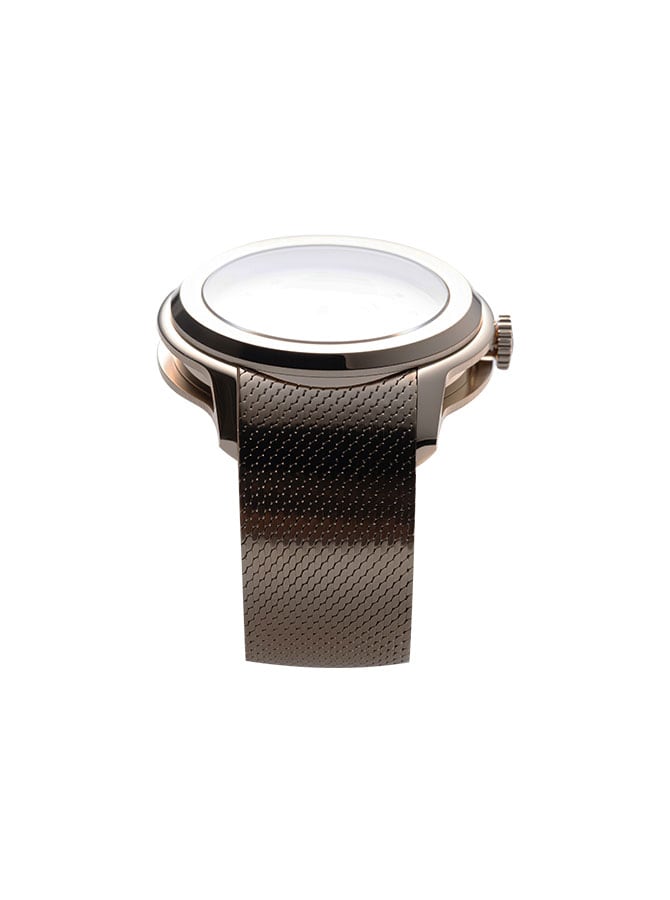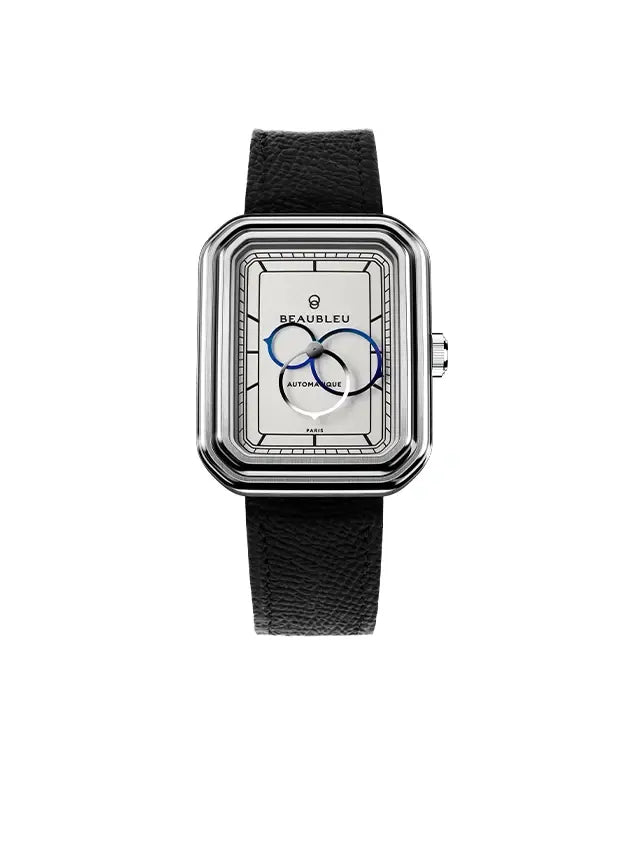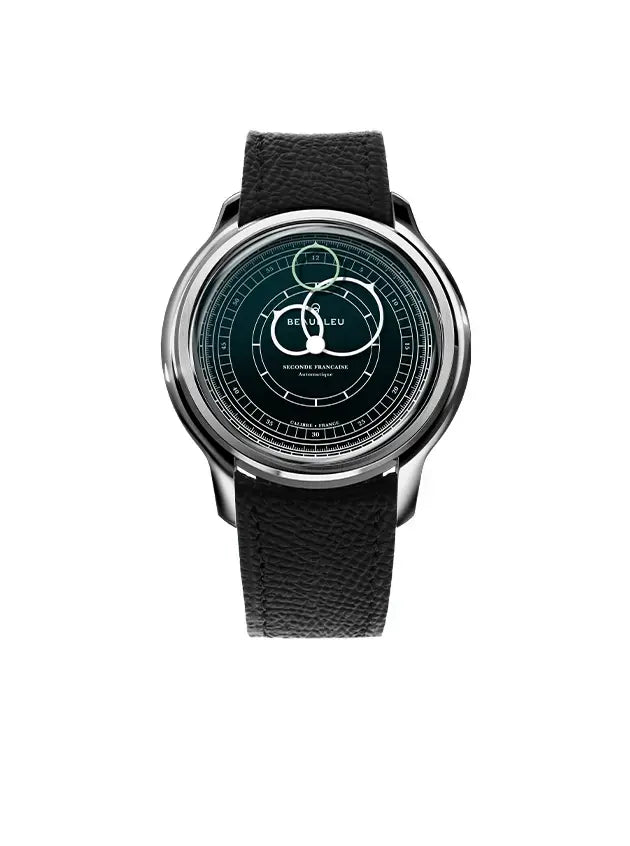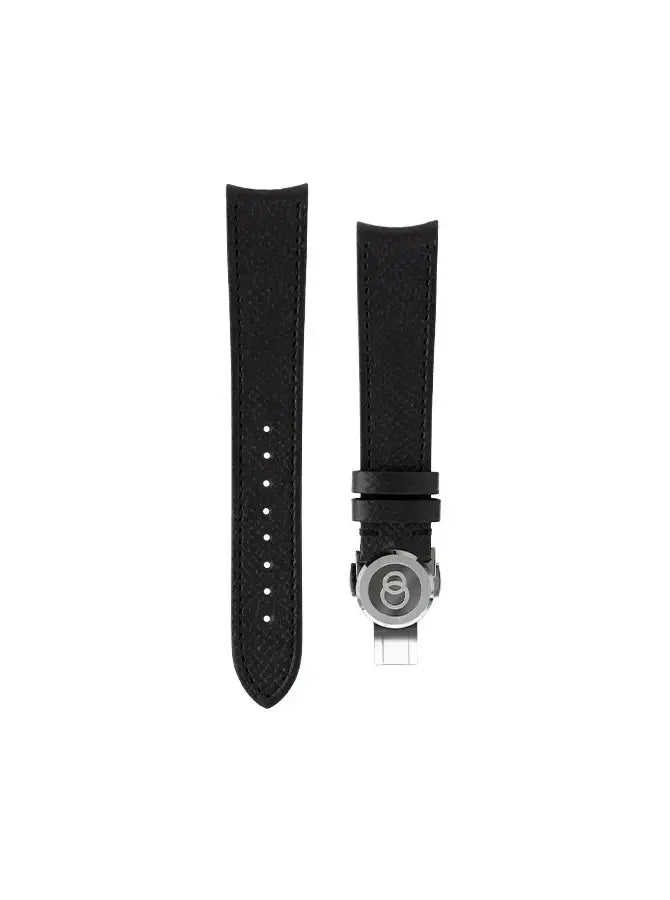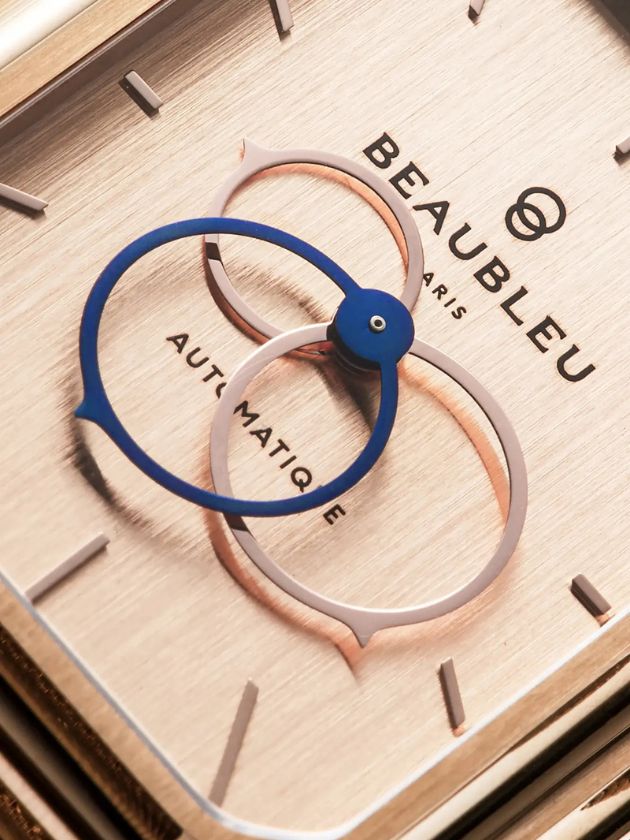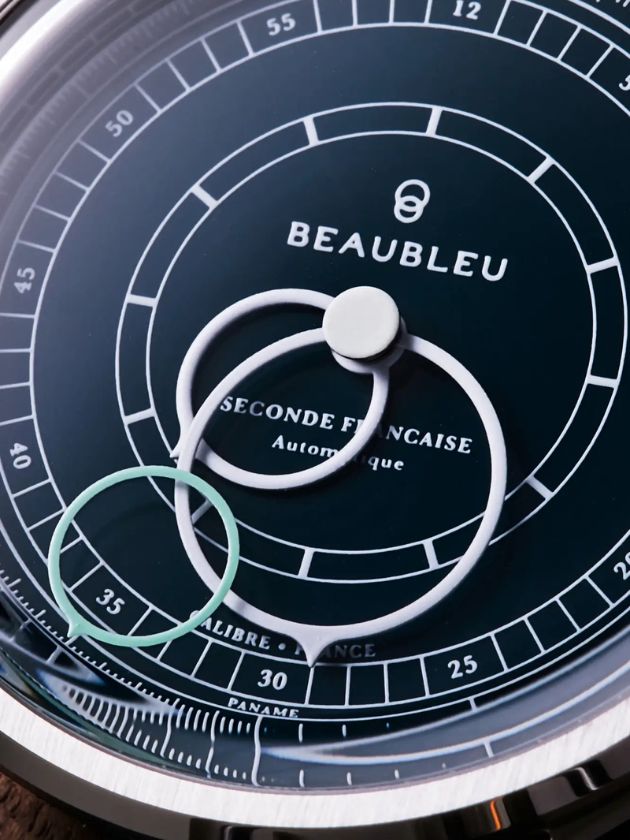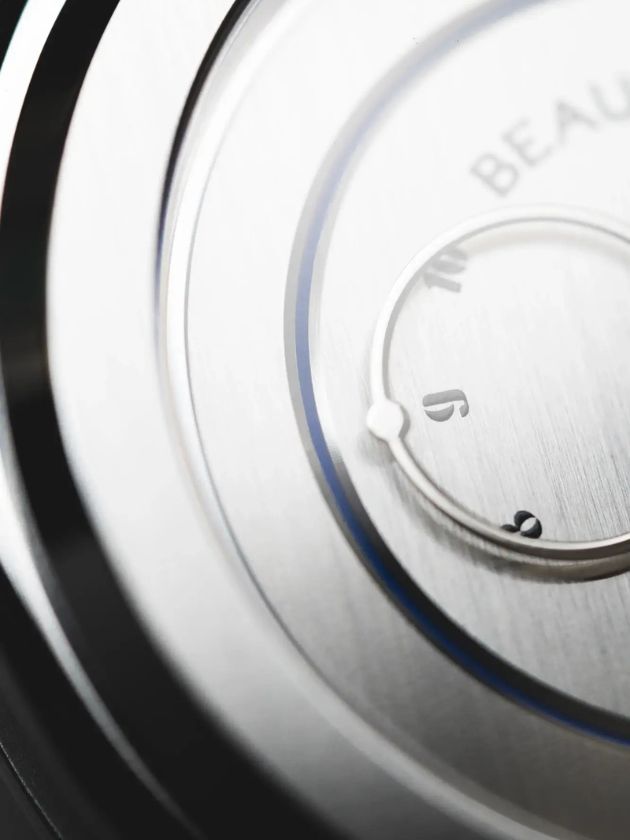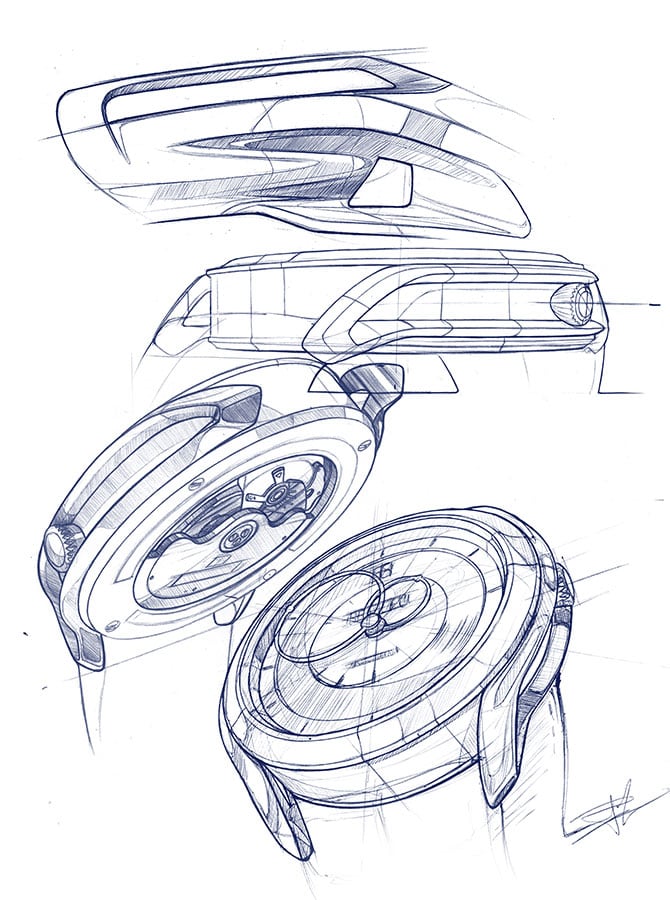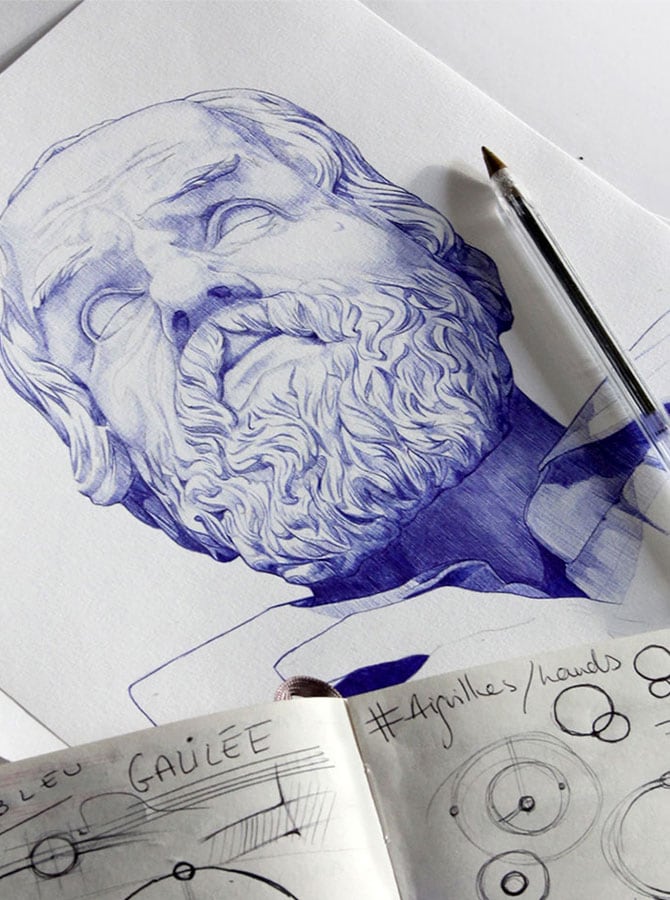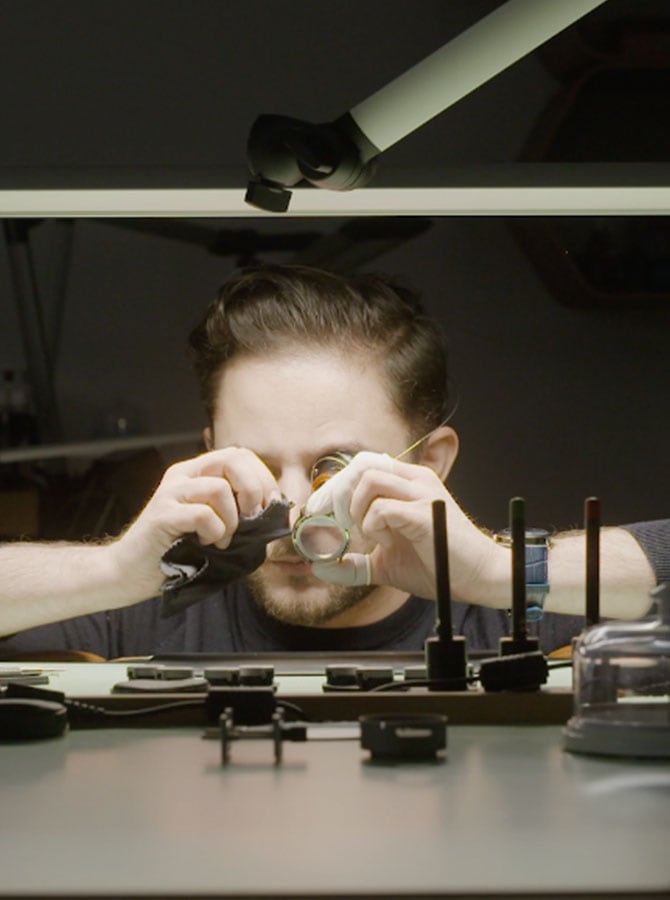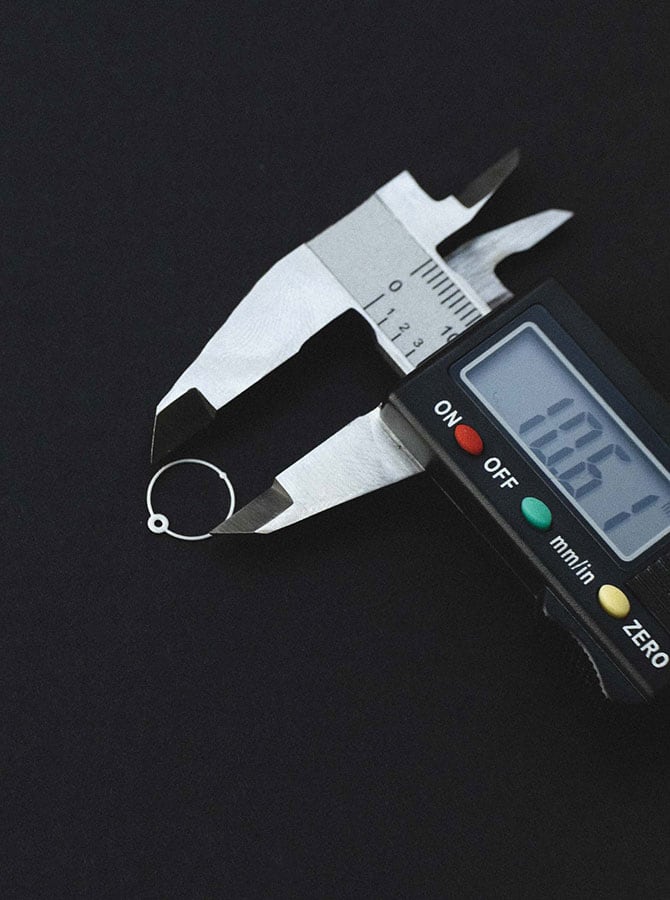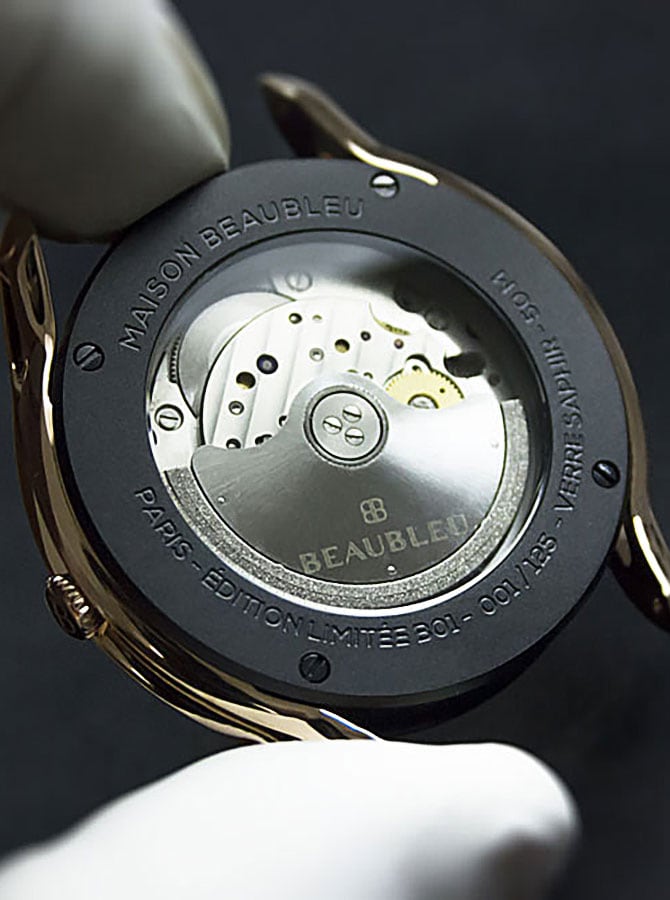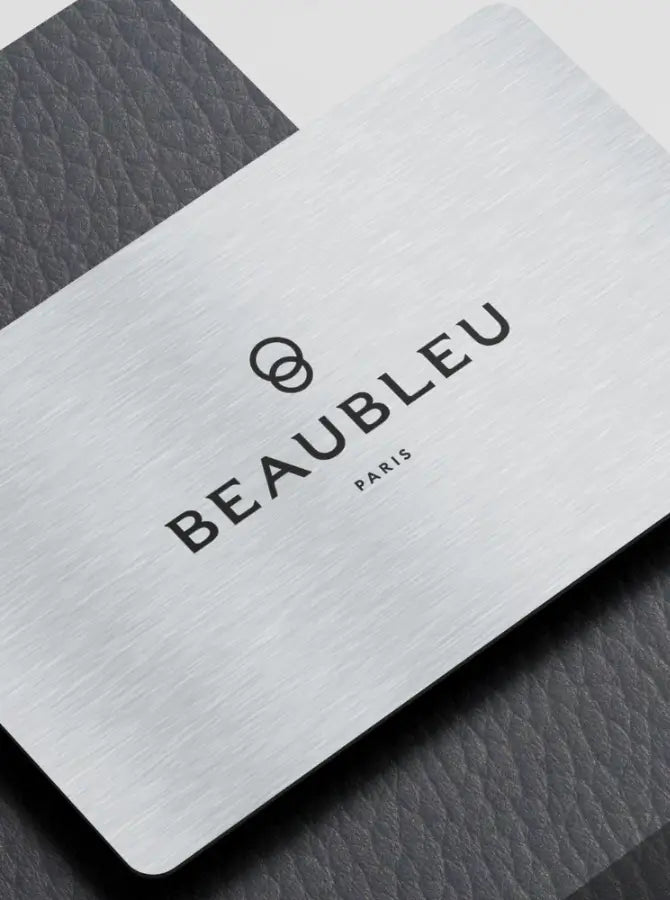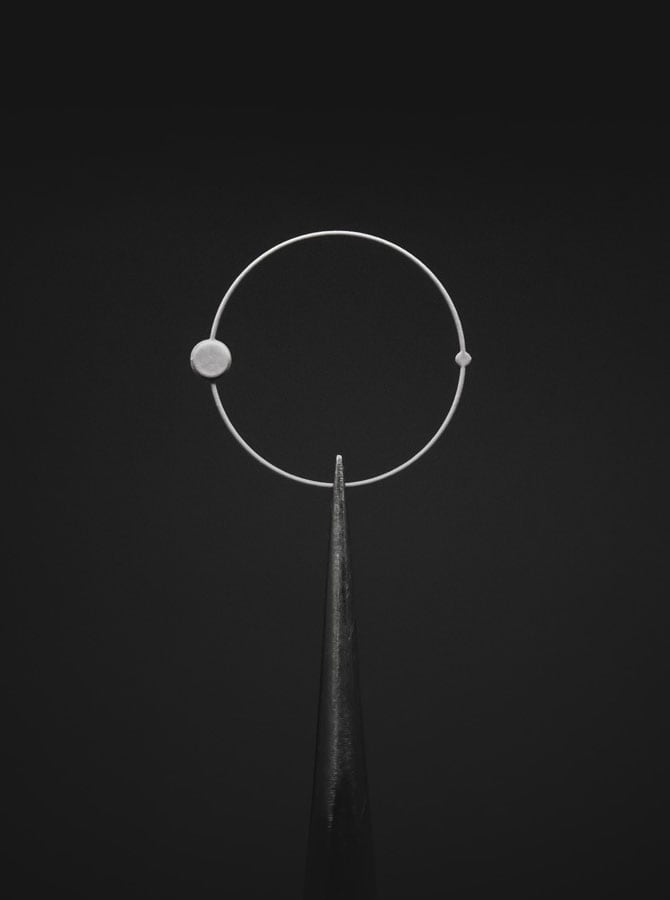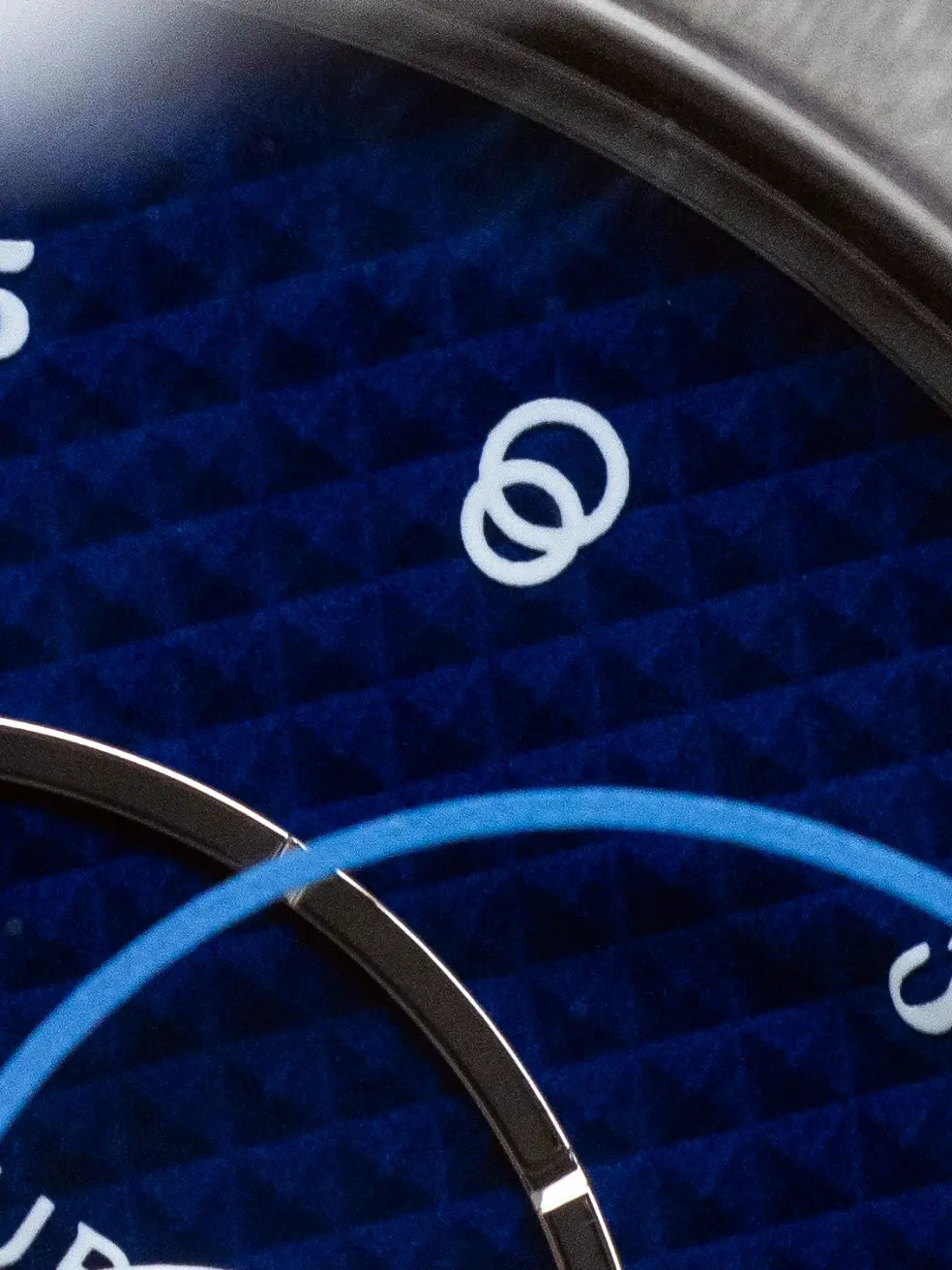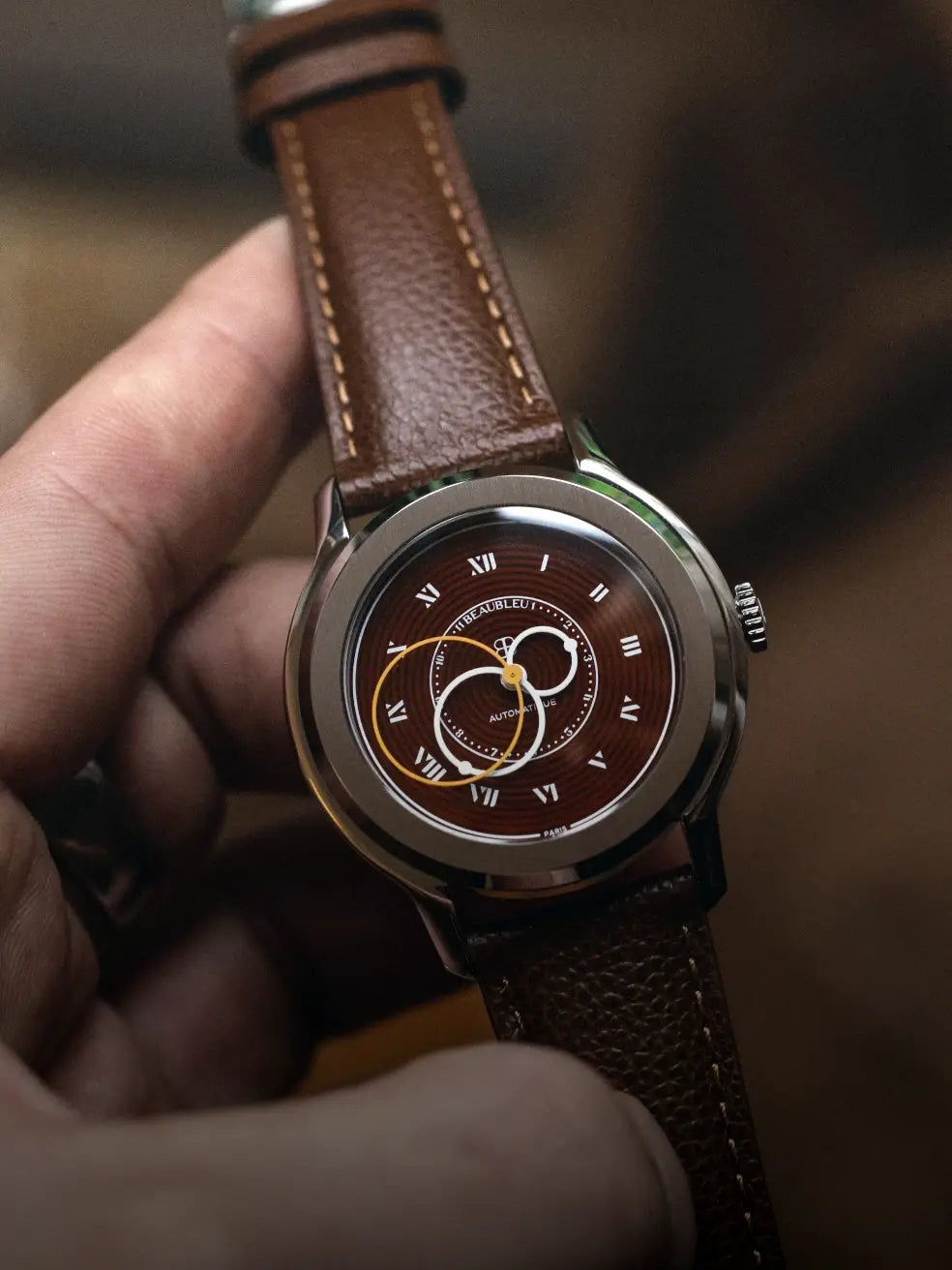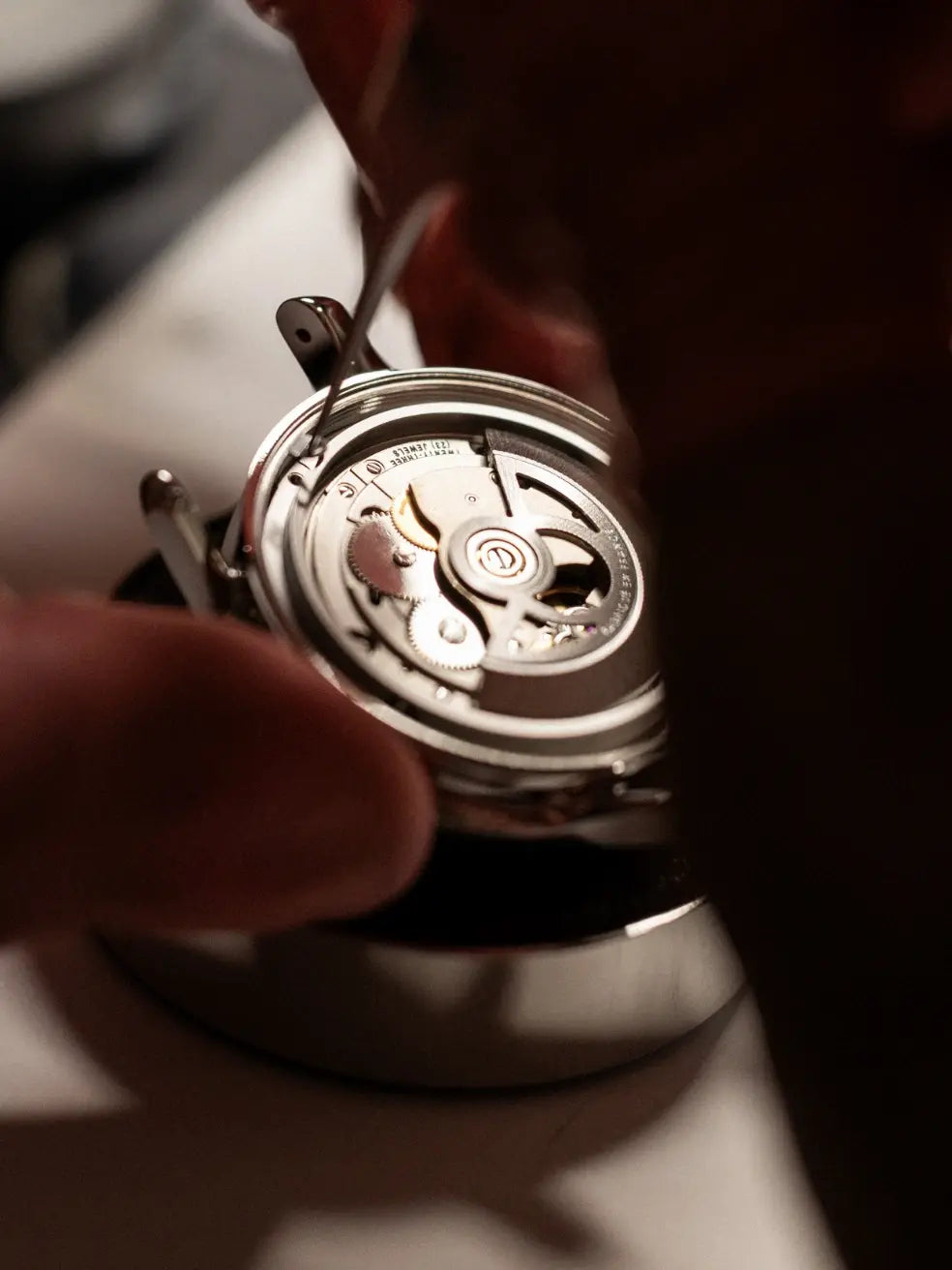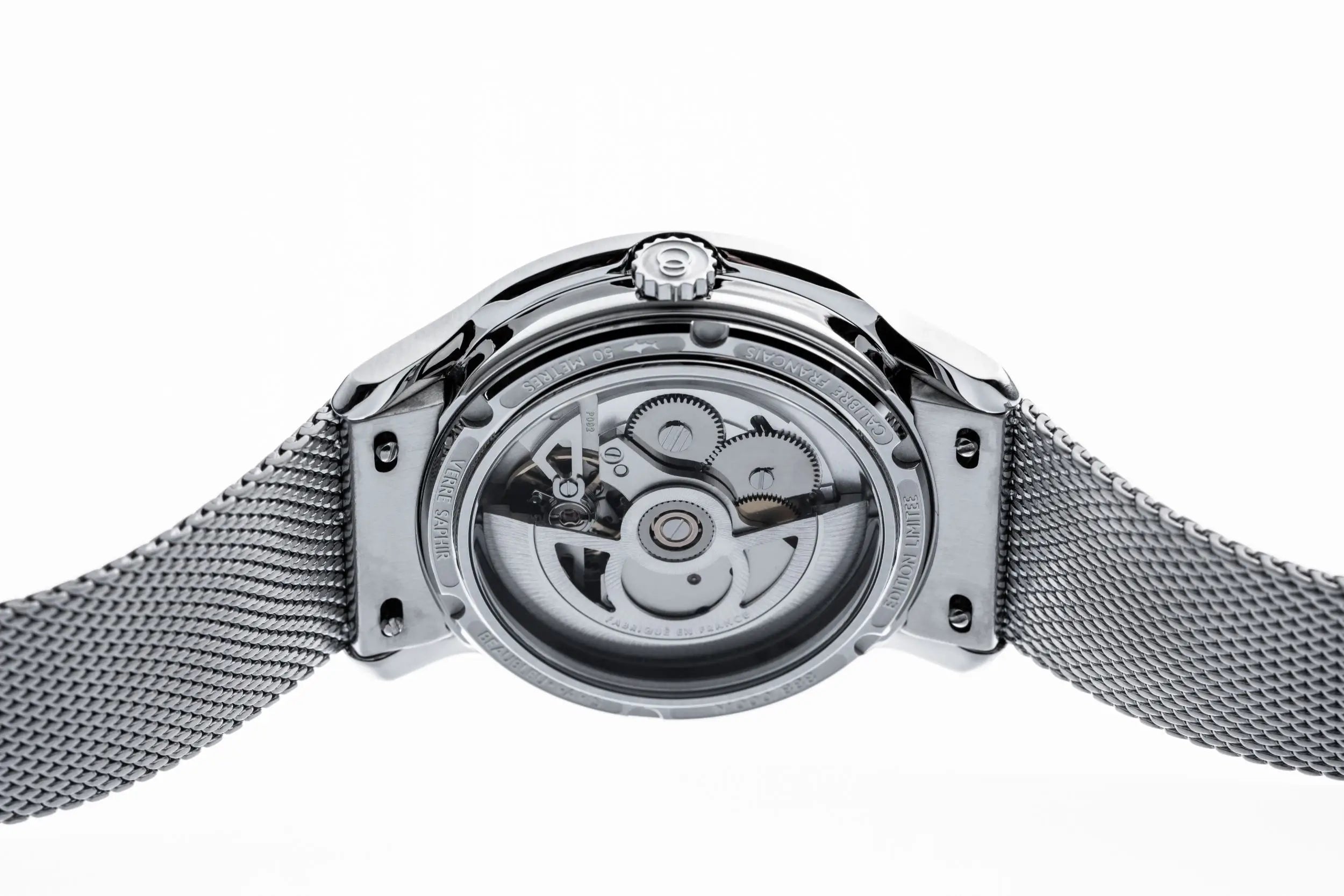
Beaubleu x France Ebauches
By choosing to equip all the models in its latest “Seconde Française” collection with France Ebauches movements, Beaubleu is participating in the revival of one of the jewels of the French watch industry. Ever more French, the brand is proudly taking a new step forward.
But for many, France Ebauches is just a name. It is therefore important to know more about this movement manufacturer and to look back at the key dates in its history before discussing its contribution to the Seconde Française.
A leap into the past is necessary. Here we are in the mid-1960s. François Perret, a visionary, describes the situation of French watchmaking at the time: excessive dispersion preventing innovations and an industrial fabric essentially made up of small companies. He is convinced that it is necessary to produce more and therefore rethink manufacturing, standardize parts, move towards greater machining precision, automate assembly... The only solution: unite to compete with the Swiss, American and Japanese giants. François Perret bets on the grouping of four family businesses from Savoie and Haut-Doubs and this is how France Ebauches is officially created on April 3, 1967.
The factory became the leader in the ébauches market in France, producing up to 8 million in 1977. It reached 2nd place worldwide, and generated a turnover of more than 20 million francs, 58% of which was generated through exports. It expanded to several sites in France, in Maîche, Villers-le-Lac, Valdahon, and Besançon, where it employed more than 700 people. France Ebauches also continued its expansion abroad in the 1980s, in Tunisia and Mauritius in particular, in order to anticipate the collapse in the sale prices of movements, which fell by 83% in less than ten years.
This relocation policy allowed it to become the leading French watchmaker, the leading manufacturer of movement blanks in the European Economic Community and the world's sixth largest manufacturer of analogue quartz modules. It continued on this path and opened a subsidiary in Hong Kong in 1983, then two years later a factory in India, near Bombay, with a transfer of technology to the latter. At the end of the decade, it offered a range of 14 mechanical movements and 19 quartz movements. But the global watchmaking crisis that hit in the early 1990s and the general drop in prices for all movements forced it to file for bankruptcy in 1994. If the other groups resisted, it was because they produced finished products, namely watches, unlike France Ebauches, which was only a movement manufacturer.
Even though it was taken over half by a Chinese multinational and the other half by some of the French executives and staff, the factory struggled and the difficulties continued, largely due to the price cuts it could not keep up with. At the beginning of 2000, all of its capital became Chinese and in 2003 it reoriented itself towards the manufacture of high-end mechanical movements. It also established a partnership with the University of Franche-Comté in order to produce its own balance springs. But although it began to market its movements in 2007, success was not forthcoming and the company was again placed in receivership in 2009.
It was not until its acquisition in 2017 by the Festina group that France Ebauches returned to the forefront of the watchmaking scene. The manufacturer is reconnecting with its prestigious past by producing two “ Made in France ” automatic movements. This return is a source of pride for Franche-Comté, the cradle of French watchmaking. By relocating, reindustrializing and developing the production of quality French mechanical movements, the manufacturer is strengthening national sovereignty, which is clearly no small feat!
It is thanks to the support of several French brands that France Ebauches is rising from its ashes. Beaubleu has chosen to equip all the models in its latest Seconde Française collection with movements manufactured by the company located in Maîche. Within this caliber, 70% of the major components (main plates, bridges and masses in particular) are produced in France, the remaining 30% (mainly the sprung balances, anchors and escapement wheels) are produced in the Swiss Jura by the sister companies of the Festina group. This is a movement made entirely in the Jura arc, which is a huge step forward for the growth of the French watchmaking industry and its long-term sustainability. While this is excellent news for the national economy, it also meets the expectations of consumers who increasingly want to turn to " Made in France " products. Today, people are keen to consume less but better, and to integrate local values and fair prices into their lifestyle and their purchases.
For Beaubleu, this is a new and beautiful step in its history. Because if all the brand's creations have been entirely imagined, designed and assembled in Paris since the beginning, it is reaching a new milestone with this decision. The Seconde Française is therefore powered by a France Ebauches caliber, offering precision and reliability. A movement that beats at a frequency of 4Hz (28,800 alt./hour), the best compromise between speed, accuracy, durability and torque. It is also equipped with the best shock absorbers on the market, the Incabloc® double cone, to ensure incomparable robustness to the regulating mechanism. And aesthetics are not left out: the bridge has been hollowed out to offer a perfect view of the regulating organ. Designed by Nicolas Ducoudert, the founder of the brand, the oscillating weight takes up the signature of Beaubleu and flies over a balance supported by two bridges visible at 360 degrees. This mechanical bomb can be admired through the open box back of all the models in the collection.
France Ebauches is also delighted with this new partnership. It is pleased to "collaborate with a young and dynamic team, a French brand that breathes a breath of fresh air into the watchmaking world with watches that have their own uniqueness " to quote one of the managers of the movement manufacturer. France Ebauches wishes all the best to this Seconde Française whose Blanc Ivoire model was recently selected for the GPHG in the "Challenge" category.
